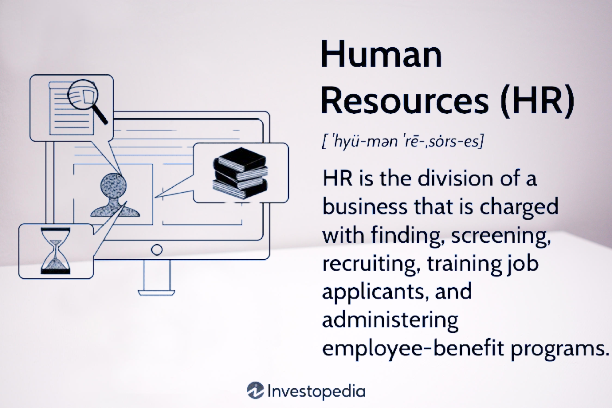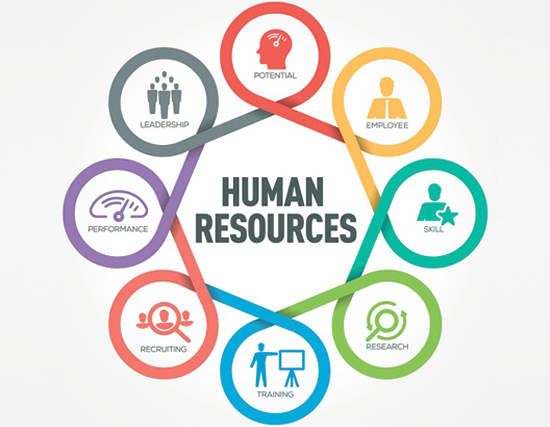Human Resources Jobs As technology redefines the modern workplace, Human Resources careers are changing more rapidly than ever. From applying AI to hiring to crafting remote-friendly policies, HR professionals are shaping the future of work. If you want a career that marries innovation with people-driven decision-making, HR is an opportunity-rich fieldhttps://bestworldjob.com.

Guide to Human Resources Jobs
What Does an HR Professional Do?
HR professionals perform Human Resources Jobs an array of responsibilities such as:
- Recruiting and hiring new staff
- Maintaining employee relations and conflict resolution
- Managing compensation and benefits
- Performance appraisal
- Enforcing labor legislation and organizational policies
- Leading leadership development and employee training
- Creating a healthy, safe, and inclusive workplace
Skills Required in Human Resources Career AND Human Resources Jobs
To excel in an HR career, you require both hard and soft skills:
- Communication and interpersonal skills
- Conflict resolution and negotiation
- Organizational and time management skills
- Understanding labor laws and compliance
- Skills in HR software (such as HRIS systems)
- Data report and analysis
- Emotional intelligence and empathy
Career Specializations in Human Resources
You can specialize in different HR functions based on your interest:
- HR Generalist
- Recruitment Specialist
- Compensation and Benefits Manager
- Training and Development Officer
- Employee Relations Manager
- HR Compliance Officer
- HR Business Partner or Director

Top HR Blogs Every HR Manager Should Follow in 2025
Staying abreast of HR trends and insights is crucial for professional development. The following are the best blogs to Human Resources Jobs follow:
- Shiftbase Blog
Tackles issues on workforce management, shift planning, and contemporary HR tools. - The Evil HR Lady
Most liked blog providing direct but realistic HR guidance in a light-hearted approach. - Workology
Specializes in HR certification, hiring, workplace trends, and learning materials. - The HR Capitalist
Provides sharp insights into talent management, leadership, and recruiting culture. - Ask a Manager Blog
Answers real-world HR and workplace questions with clear, actionable advice. - Laurie Ruettimann Blog
Honest opinions on leadership, HR burnout, and fixing toxic work environments. - HR Bartender
Light, practical discussions on workplace culture and HR challenges. - Harvard Business Review
While broader in scope, HBR includes cutting-edge research on leadership and HR strategy. - Human Resource Executive Magazine
Industry-leading content for senior professionals and HR executives. - HRZone
UK website providing expert opinion on employee engagement, culture, and change. - HR Dive
Rapid, trusted HR news flashes, policy updates, and case studies. - The Officevibe Blog
Excellent resource for employee engagement, remote team interactions, and feedback culture. - CareerPlug
Eager to advance hiring practices for small and mid-sized companies. - The Chief Happiness Officer Blog
Investigates how to create happier, more productive workplaces. - The Employer Handbook Blog
Merges legal compliance and HR management guidance with practical examples. - The Tim Sackett Project
Witty, opinionated, and incisive writing from a recruiting and HR professional. - TalentCulture
Addresses workplace culture, leadership, tech, and HR strategy topics. - Human Resources Today
An aggregator that consolidates the best HR information from several expert sources Human Resources Jobs. - People Management Blog
By CIPD, centers on HR practice and UK and global leadership. - Culture Amp
Data-driven, this blog posts on research and advice pertaining to engagement and performance. - theHRDIRECTOR Blog
Executive-level observations, case studies, and HR leadership highlights Human Resources Jobs.

The Advantages and Disadvantages of Working as an HR Professional
Human Resources or HR is a critical function in all companies, with a core responsibility to recruit, retain, and grow talents. If you have plans to pursue a career in HR, it’s essential to Human Resources Jobs know the advantages as well as the disadvantages of the job. Here is a balanced summary to enable you to make an informed choice.
✅ The Advantages of a Career in HR
1. High Job Satisfaction
HR professionals tend to be highly satisfied with their jobs. They get to influence the workplace, resolve people-related issues, and play a part in staff success and well-being. Seeing employees grow and succeed makes the job worthwhile and satisfying Human Resources Jobs .
2. Steady Job Growth
Organizations have come to understand the strategic value of HR more and more. Consequently, the demand for HR professionals is growing steadily in all industries. Special emphasis areas like Diversity, Equity & Inclusion (DEI), HR analytics, and remote workforce management are particularly increasing.
3. High Salaries
HR jobs—especially in leadership or specialized roles—are often rewarded with competitive salaries. With the appropriate experience and education, jobs such as HR Manager, Compensation Specialist, or HR Director offer strong financial incentives Human Resources Jobs.
4. Good Work/Life Balance
Most HR careers have standard work hours, and some roles offer remote or flexible work options. Unlike many high-pressure Human Resources Jobs business roles, HR tends to provide a better balance between work and personal life Human Resources Jobs https://www.glassdoor.com.

⚠️ The Disadvantages of a Career in HR
1. Handling Difficult Conversations
One of the toughest aspects of working in HR is managing sensitive issues—terminations, performance warnings, or employee complaints. These situations require Human Resources Jobs professionalism, emotional control, and compassion Human Resources Jobs.
2. Challenges in Leading Change
Driving change in an organization is never easy. HR professionals often face resistance when trying to introduce new policies, cultural shifts, or performance systems. Human Resources Jobs Strong change management skills are essential.
3. Staying Updated with Laws and Policies
HR practitioners must constantly monitor employment laws, regulatory updates, and company policies. Falling behind can lead to compliance risks and legal issues.
4. Workplace Misconceptions
HR is often viewed only as an administrative department or policy enforcer, which can undermine its strategic role. Overcoming these misconceptions requires proactive engagement and education across the organization Human Resources Jobs.
Frequently Asked Questions (FAQs) Regarding Human Resources Jobs
1. What is a Human Resources (HR) job?
A Human Resources job entails the management of the employee life cycle, such as hiring, onboarding, training, performance management, employee relations, payroll, and ensuring legal compliance for an organization.
2. What qualifications do I have to work in HR?
Most HR jobs demand at least a bachelor’s degree in Human Resources, Business Administration, Psychology, or a related discipline. Certifications such as SHRM-CP, SHRM-SCP, or PHR can enhance your career and add value to your professional reputation.
3. What are the various categories of HR jobs?
Following are some of the most popular HR job titles:
- HR Assistant
- Recruiter or Talent Acquisition Specialist
- HR Generalist
- HR Manager
- Compensation and Benefits Specialist
- Training and Development Officer
- Employee Relations Manager
- HR Business Partner
4. Are HR jobs in demand?
Yes! HR jobs are in great demand worldwide, particularly in industries such as technology, healthcare, education, and finance. The rise in remote work, focus on workplace culture, and the need for talent retention have increased the demand for qualified HR professionals.
5. What skills are required for a successful HR career?
Essential HR skills include:
- Good communication
- Conflict resolution
- Problem-solving
- Organizational and time management
- Knowledge of labor legislation and HR software
- Emotional intelligence
- Leadership and collaboration
6. Can I become an HR professional without experience?
Yes, you may begin with entry-level positions such as:
- HR Assistant
- HR Intern
- Recruitment Coordinator
You can gain experience through internships, volunteering, or short HR certification programs.
7. Is HR a stressful career?
HR can be emotionally demanding, particularly when handling terminations, conflicts, or compliance issues. However, it is also extremely rewarding, as you help develop people’s careers and foster a better workplace culture.
8. What is the average HR salary?
Salaries vary based on experience, education, and location. Approximate annual ranges:
- HR Assistant: $35,000 – $50,000
- HR Generalist: $50,000 – $70,000
- HR Manager: $70,000 – $100,000+
- HR Director or VP: $100,000 – $150,000+
9. What is the potential for career advancement in HR?
HR provides excellent career development opportunities. Professionals can grow into:
- HR Management
- Strategic roles
- Executive leadership
In-demand specializations include:
- HR Analytics
- Diversity & Inclusion (DEI)
- Organizational Development
10. Is remote work possible in HR?
Yes! Many HR functions are now remote-friendly, especially in areas such as:
HR policy and compliance
Recruitment
Training and development
Benefits administration
1. What is a Human Resources (HR) job?
A Human Resources job entails the management of the employee life cycle, such as hiring, onboarding, training, performance management, employee relations, payroll, and ensuring legal compliance for an organization.
2. What qualifications do I have to work in HR?
Most HR jobs demand at least a bachelor’s degree in Human Resources, Business Administration, Psychology, or a related discipline. Certifications such as SHRM-CP, SHRM-SCP, or PHR can enhance your career and add value to your professional reputation.
3. What are the various categories of HR jobs?
Following are some of the most popular HR job titles:
- HR Assistant
- Recruiter or Talent Acquisition Specialist
- HR Generalist
- HR Manager
- Compensation and Benefits Specialist
- Training and Development Officer
- Employee Relations Manager
- HR Business Partner
4. Are HR jobs in demand?
Yes! HR jobs are in great demand worldwide, particularly in industries such as technology, healthcare, education, and finance. The rise in remote work, focus on workplace culture, and the need for talent retention have increased the demand for qualified HR professionals.
5. What skills are required for a successful HR career?
Essential HR skills include:
- Good communication
- Conflict resolution
- Problem-solving
- Organizational and time management
- Knowledge of labor legislation and HR software
- Emotional intelligence
- Leadership and collaboration
6. Can I become an HR professional without experience?
Yes, you may begin with entry-level positions such as:
- HR Assistant
- HR Intern
- Recruitment Coordinator
You can gain experience through internships, volunteering, or short HR certification programs.
7. Is HR a stressful career?
HR can be emotionally demanding, particularly when handling terminations, conflicts, or compliance issues. However, it is also extremely rewarding, as you help develop people’s careers and foster a better workplace culture.
8. What is the average HR salary?
Salaries vary based on experience, education, and location. Approximate annual ranges:
- HR Assistant: $35,000 – $50,000
- HR Generalist: $50,000 – $70,000
- HR Manager: $70,000 – $100,000+
- HR Director or VP: $100,000 – $150,000+
9. What is the potential for career advancement in HR?
HR provides excellent career development opportunities. Professionals can grow into:
- HR Management
- Strategic roles
- Executive leadership
In-demand specializations include:
- HR Analytics
- Diversity & Inclusion (DEI)
- Organizational Development
10. Is remote work possible in HR?
Yes! Many HR functions are now remote-friendly, especially in areas such as:
- Recruitment
- Training and development
- Benefits administration
- HR policy and compliance
